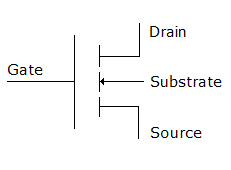ECE :: Electronic Devices and Circuits
-
When a ferromagnetic substance is magnetised, there are small changes in its dimensions. This phenomenon is called
-
Gold is often diffused into silicon PN junction devices to
-
Assertion (A): FET is a unipolar device.
Reason (R): BJT is bipolar device.
-
Ferrites are
-
In a p-n-p transistor the main current carriers and the mechanism of flow respectively are
-
In common base connection, the output characteristics of a bipolar junction transistor is drawn between
-
In fabricating silicon BJT in ICs by the epitaxial process, the number of diffusions used is usually
-
Consider the following statements about diamagnetic material and diamagnetism.
- The materials have negative magnetic susceptibility.
- At very low temperature diamagnetic materials.


 Whatsapp
Whatsapp
 Facebook
Facebook


